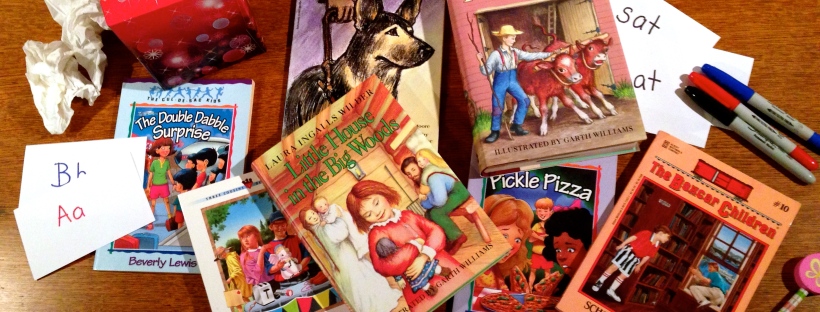Elise peered out the window of her Lake District room and smiled. Overcast but dry. No need for wellies today! Spending two weeks of her summer holidays in England’s Lake District was proving to be just as wonderful as she had imagined.
Traipsing out the door sans wellies, Elise decided to explore beyond the garden and gate of her holiday home and headed toward one of the lakes that help the Lake District live up to its name.
Near the water, Elise spotted a few children and, she assumed, their mother sitting and sprawled on a blanket under a tree’s boughs. The children seemed spellbound. Elise decided not to disturb them but walked by close enough to see what was going on. Ah, yes, the mom was reading a book aloud.
Of course, Elise couldn’t help overhearing bits of the story as she stood by the water’s edge. And, of course, she couldn’t help getting curious.
Finally, she meandered over by the relaxing readers. The mom stopped reading as she drew closer. “Excuse me,” Elise said, “but I couldn’t help overhearing and getting curious, so I have to ask, what book are you reading?”
“It’s a ‘living book’!” the little boy in the golfer’s hat exclaimed.
The mom laughed. “No trouble at all. Here it is,” she said.
Elise took the volume. Not a name she recognized. It looked new though. “Thank you. What’s a ‘living book’?” she asked as she handed the book back to the mom.
“A book that captures our imaginations,” the other little boy said with a grin.
“A book that let’s us get to know the people and places it’s about,” added the little girl.
“That’s the basic idea,” the mom said. “I guess they’ve heard me say that a few times! I got the idea from another book.” She reached into a picnic basket. “This one.”
Elise took the thin book. “For the Children’s Sake?”
“Yes. It’s an overview of an educational philosophy that grew right here in the Lake District.”
“Really? I’ve never heard of it, but I’m curious. Again,” she grinned. “I work with kids.”
“You do?” the little girl asked.
“Yes,” Elise smiled. “I do. A lot, in fact.”
“Oh, you could borrow it if you like. Are you staying nearby?” The mom asked.
“Yes. Just over there.” Elise pointed back the way she had come.
“Lovely! By all means, borrow it. We can call by for it in a week or so.”
“Do you live around here?” Elise asked.
“Oh, no. We’re just spending the summer here. My husband is working on research for one of his projects, and we all needed to get away somewhere quiet. His aunt lives in a big house over that way.”
Elise thought that an aunt who lived in the Lake District with a big house would be something she’d like to have. Out loud she said, “Oh, how nice! Well, thank you very much for loaning me the book….”
After more conversation with the little family and a good long walk, Elise curled up on a chair in her room, a cup of tea and a couple of shortbread cookies beside her. Then she opened the book. Chapter 2 caught her attention: “Children Are Born Persons”. Hmmm. This will be interesting!
The book Elise reads in the above snippet is For the Children’s Sake: Foundations of Education for Home and School by Susan Schaeffer Macaulay. Within its pages, Susan explores the ideas of English education reformer Charlotte Mason. As teachers and parents in much of the world are making their plans for the upcoming school year, it might do us all some good to look back at this woman’s ideas, including the use (and enjoyment!) of “living books”. (A few of my favorite “living books” were featured in last week’s post.) If not for ourselves, then for the children’s sake.

